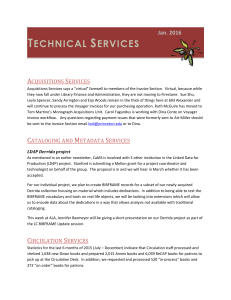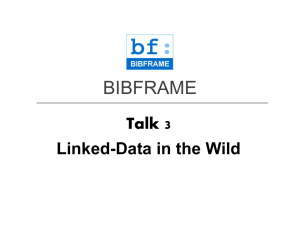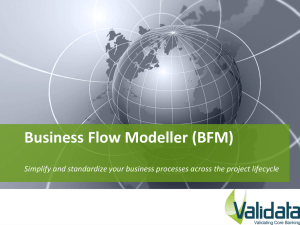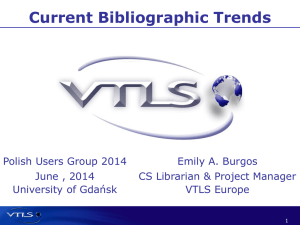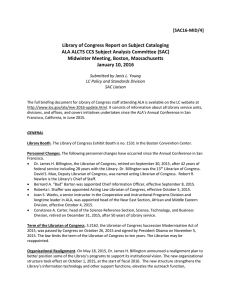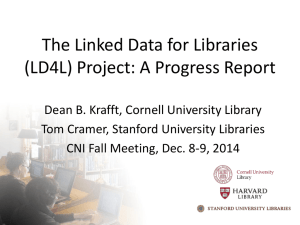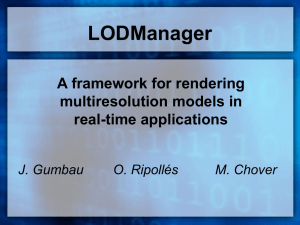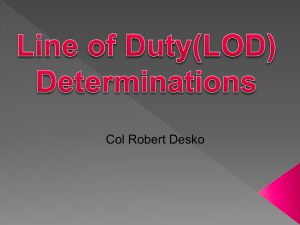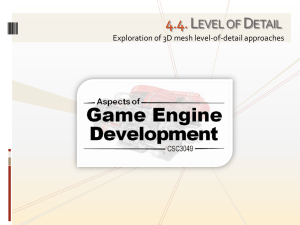BIBFLOW update Xiaoli Li
advertisement
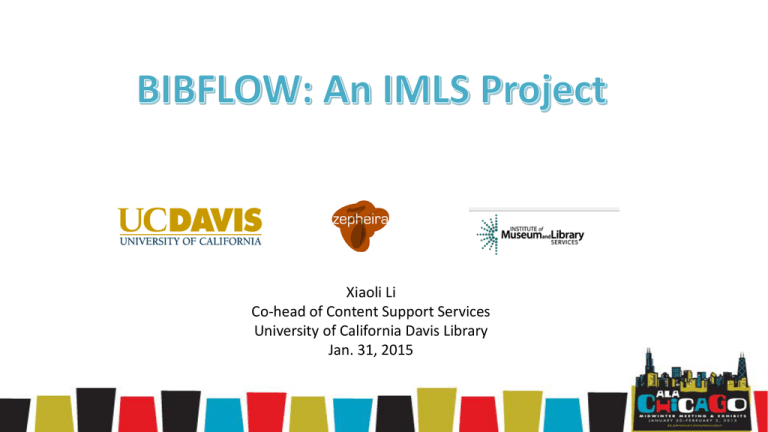
Xiaoli Li Co-head of Content Support Services University of California Davis Library Jan. 31, 2015 What Is the BIBFLOW Project? • • • Is a 2-year project of the UC Davis University Library and Zepheira, funded by Institute of Museum and Library Sciences (May 2014 – April 2016) Its official title is “Reinventing Cataloging: Models for the Future of Library Operations” Is a research project that will address questions like “What impact will adoption of BIBFRAME on technical services workflows in an academic library”? • • BIBFLOW = BIBframe + workFLOW One of the major deliverables is a that can help library community transition cataloging work to a linked data/BIBFRAME native ecosystem How? This complexity leads to the inevitable conclusion that Linked Data represents an evolutionary leap for libraries and not a simple migration. Workflows and Use Cases BIBFLOW’s focus is on developing a roadmap for migrating essential library work efforts (workflows) to a BIBFRAME / LOD ecosystem. Library work involves daily engagement with a large collection of software systems, institutions, and vendors. As such, moving to a LOD ecosystem is not simply a matter of understanding its impact on library data but also on these complex workflows. Melvyl (UC OPAC) New Name Auth? Harvest (UCD OPAC) yes OCLC WorldCat yes Aleph Vendor Service Auth Auth New Sub Heading? Auth Control Propose to LC Bib Bib Create holdings record Add/complete item record Original Cataloging Workflow for Print Monographs Automated process (weekly done by Systems Dept) Physical Processing Unit Use Case: Original Non-Rare Book Cataloging Using OCLC Connexion Client 1 We need your feedback! We invite comment on these workflows posted on our project blog: http://www.lib.ucdavis.edu/bibflow/workflow-analysis/ Please let us know how these workflows compare to the workflows at your institution and also what workflows are missing. We will use your input to adjust our testing as the project progresses. Assessment of Library Management System To make the transition into LOD/BIBFRAME possible, library community needs a linked data oriented system Key Findings about Kuali-OLE • OLE 1.0 (latest release at the time when we reviewed the product in 2014) is not cable of supporting LOD/BIBFRAME operations. However, • OLE’s bibliographic database (DocumentStore) is robust, extensible, and capable in its current form of dealing with linked data. This is advantageous from a development perspective. For more information, visit our project blog: http://www.lib.ucdavis.edu/bibflow/initial-kuali-ole-assessment/ Based on identified workflows and the Kauli-OLE assessment, we were able to develop a preliminary LOD/BIBFRAME implementation model. This model allows for the gradual, phased shifting of library work efforts from a MARC to LOD/BIBFRAME ecosystem such that all workflows will function and communicate with each other synchronously regardless if they are LOD/BIBFRAME or MARC native. What’s Next? UC Davis and Zepheira will enhance BIBFRAME Scribe by adding external services and developing BIBFRAME profiles MeSH > Serials > maps > Authority? > ?? What’s Next? (continued) • • • Program the Kauli-OLE product so UCD catalogers can use Scribe to create BIBFRAME description for various materials and store the data in a BIBFRAME-RDF triplestore. Develop and test data transformation service/tools Identify and connect an open source OPAC to the triplestore Standard Kauli - OLE Implementation Full BIB OLD/BIBFRAME Implementation Native LOD/BIBFRAME Implementation Holdings Content from Web Order EAD METS RDA CIRC ? Vendors OCLC DDI Publishers Triplestore Thank you! We look forward to your feedback! bibflow@lib.ucdavis.edu http://lib.ucdavis.edu/bibflow
